Category: Tips and Tricks
Articles about tips and tricks for caregivers and nurses caring for the terminally ill.
Articles about tips and tricks for caregivers and nurses caring for the terminally ill.

Hospice fraud not only harms terminally ill patients but also devastates their caregivers and families. This article explores the impacts and offers tips on choosing a reliable hospice provider.

As a nurse or doctor, you have the power to transform patient care through timely end-of-life conversations. This guide provides practical strategies to help you confidently discuss prognosis, encourage advance care planning, and introduce hospice care when appropriate—across hospitals, nursing facilities, and more.
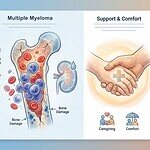
This comprehensive guide helps patients, families, and caregivers understand Multiple Myeloma diagnosis and staging, explore survival expectations, and navigate palliative and hospice care options. Discover practical caregiving strategies and when early palliative care can enhance quality of life.
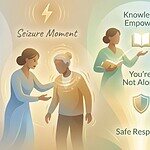
When someone you love has dementia, seizures may become part of their journey. Learn which types of dementia increase seizure risk, how to recognize and respond to seizures safely, when to call for emergency help, and which medications may affect seizure risk. This compassionate guide empowers caregivers with knowledge and confidence.

Hospice providers have proven strategies to reduce symptom burden and boost satisfaction scores. Discover how combining nurse practitioner telehealth visits, educational videos, and end-of-life doula support transforms caregiver confidence and patient comfort in home-based care.

Navigate the journey of acute myeloid leukemia with confidence. This comprehensive guide covers disease progression, comfort-focused symptom management, and practical palliative and hospice care timing advice.

A heartbreaking Facebook post reveals the devastating reality when families don't plan ahead for long-term care. Learn how Medicaid Asset Protection Trusts and working with life transition coaches years in advance can protect your home, savings, and dignity—and why the five-year lookback means you must act now.

Geri-Gadgets® are safe, sensory-rich fidget tools designed to help people with dementia, neurodiverse individuals, and anyone who benefits from fidgeting. These colorful, non-toxic products improve mood, reduce anxiety, encourage engagement, and support physical and cognitive health. Learn how these innovative tools can transform care.
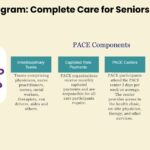
The Program of All-Inclusive Care for the Elderly (PACE) provides essential support for seniors who require nursing home-level care but wish to remain in their communities. This comprehensive guide outlines eligibility requirements, available services, associated costs, and how PACE’s team-based approach helps older adults maintain their independence while receiving quality healthcare.

Chronic Obstructive Pulmonary Disease (COPD) is a serious lung condition linked to smoking and vaping that affects millions of people. Understanding the connection between tobacco use and COPD, recognizing early symptoms, and pursuing timely treatment can significantly extend life expectancy and improve quality of life.

Explore how aromatherapy and essential oils relieve anxiety, grief, loss, and critical symptoms like pain and nausea across all stages of life. Practical, safe use tips are provided for caregivers, doulas, and health professionals to support holistic well-being.

The RAIN method is a powerful mindfulness technique that helps individuals process grief, loss, and anxiety. This four-step approach—recognize, allow, investigate, and nurture—provides a compassionate way to work through difficult emotions. Learn how caregivers, family members, and end-of-life professionals can use RAIN.

Recent University of Michigan research found that benzodiazepines and antipsychotics commonly prescribed in hospice care may significantly increase mortality risk for people with dementia. This article explores these findings and provides essential advocacy guidance for families, caregivers, and hospice professionals.
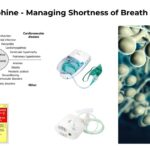
Nebulized morphine provides significant relief for patients with severe breathlessness, especially in end-stage pulmonary diseases. Learn about its application, dosage, and benefits in hospice care.
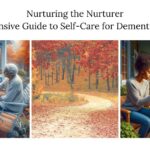
Caring for a loved one with dementia is a challenging journey that can take a toll on caregivers' physical and emotional health. This comprehensive guide offers practical strategies for dementia caregivers to prioritize self-care, manage stress, and maintain their well-being while providing compassionate care for their loved ones.

Discover essential strategies for managing diabetes in loved ones with dementia. This comprehensive guide covers blood sugar monitoring, medication administration, diet management, and recognizing emergencies, empowering caregivers to provide optimal care.

Deciding when to involve hospice care for a loved one with dementia can be challenging. This comprehensive guide helps non-healthcare professionals recognize the signs that indicate it's time to consider hospice, understand the benefits of hospice care, and navigate the decision-making process with compassion and informed judgment.

Discover how the PIE method (Problem-Intervention-Evaluation) can transform your hospice IDT note writing. This simple framework helps nurses create focused, compliant documentation even when patients are stable and well-managed.

A terminal diagnosis sends shockwaves through the lives of patients and their loved ones. This article delves into the trauma experienced by all involved, examining the intricate challenges faced by hospice and palliative care providers in offering compassionate support while navigating the complex emotional landscape of end-of-life care.

Nursing students' fear of death significantly impacts their readiness for hospice care, affecting the quality of end-of-life services. With severe staffing shortages and insufficient mentorship, new nurses enter hospice unprepared. End-of-life doula education through programs like death doula schools provides crucial solutions.
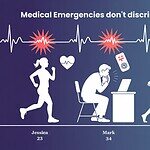
If you're 18 or older without an advance directive, you're putting yourself and your loved ones at risk. This comprehensive guide explains why every adult—regardless of age—should prioritize creating a thorough living will reviewed every 3-6 months, and how end-of-life doulas can help.

Learn why planning a death vigil early with an end-of-life doula creates meaningful final moments, reduces family stress, and helps prevent complicated grief. Discover the profound benefits of this sacred practice for everyone involved.

Discover how CaringBridge helps families and end-of-life doulas stay connected during health journeys. This free platform offers privacy controls, easy updates, and community support for chronic illness, terminal illness, and life transitions.

Primary caregivers often face difficult emotions of isolation when loved ones step back during a chronic or terminal illness. This article thoughtfully addresses these feelings, delves into the reasons for this distance, and provides constructive communication strategies to foster reconnection with hesitant family members. It also highlights alternative support avenues for caregivers, ensuring they feel valued and supported.